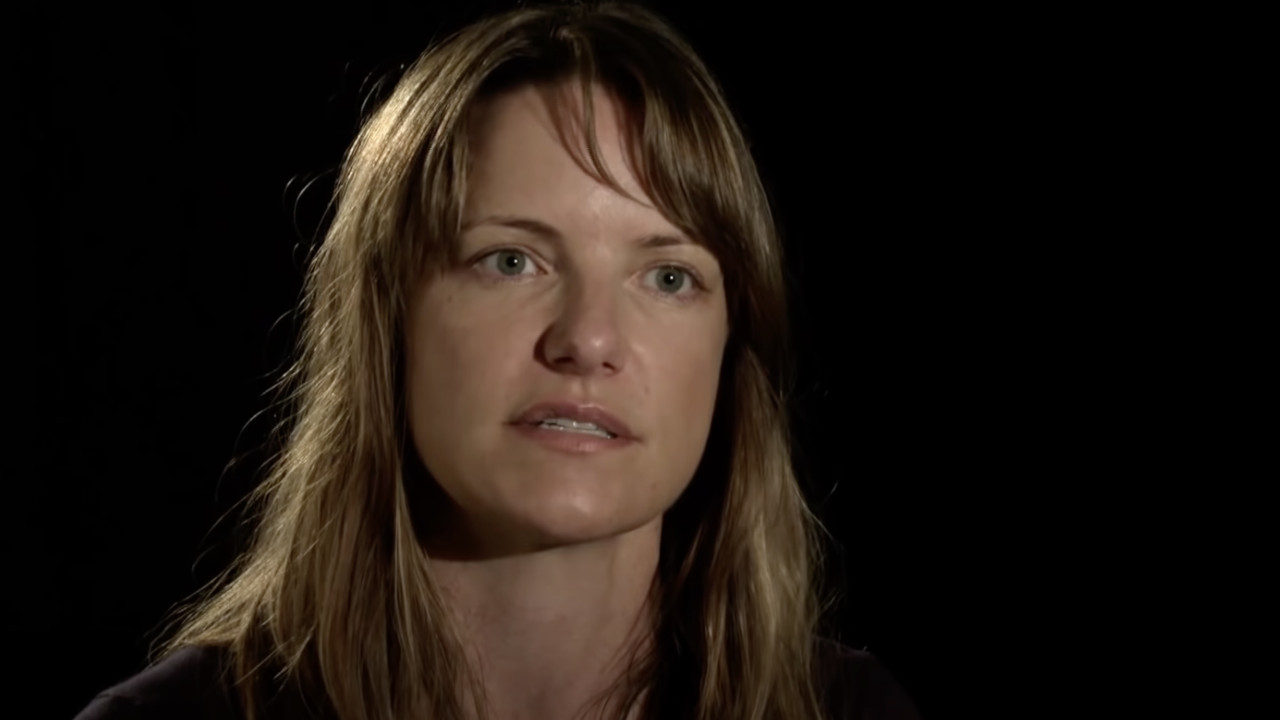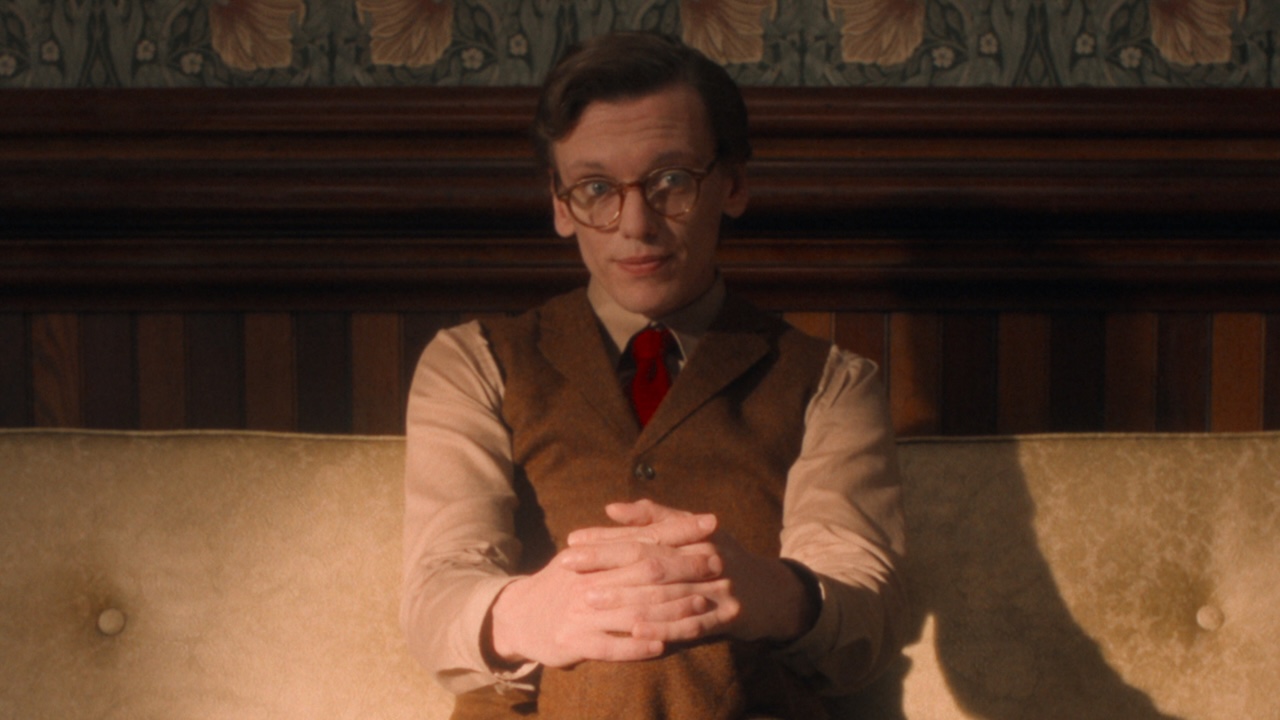San Francisco International Film Festival Review: Better This World

Our occasional correspondent Michael Gottwald was at the San Francisco International Film Festival a few weeks ago, and wrote in with a very personal account of a documentary that struck close to home-- literally.
In New Orleans, in my neighborhood and those around it it, there is a small portion of the population that sticks out like a sore, tattooed thumb. They dress in army fatigues, tank tops, colors that range from burnt green to burnt beige--some have backpacks, sleeping bags, dogs. They beg you for change, but they won’t come up to you in some sort of (possibly conjured) desperate situation like the older cardboard signers underneath Highway 90. This contingency skews far younger and is almost singularly white, and they just ask you straight up, earnestly, “Hey man! Can you spare a couple bucks?!” They’re outside a local corner store, they’re leaning against an art gallery somewhere in the French Quarter, they’re sprawled out on the neutral ground a few yards away from the Mexican and Honduran laborers looking for work. Some of them strum guitar or banjo with a hat out in front of them. Come May, they’ll hop a train to Minneapolis, I’m told, where they’ll do much of the same until the weather gets habitable again in New Orleans (usually late September). They’re proudly unemployed, and you can be forgiven if, in response to an inquest for spare dollars, you have the urge to yell at them to call their parents.
However, the truth is that I don’t know any of them--where they came from, or what their life is really like. Ostensibly these young idealists have forgone the traditional, modern American notions of home and success for a more communal, transient way of living. They’ve married old school hippie values with a punk perspective, and many would self-identify as anarchists, or at least, “against the system.” Though not of the same lot at all, Brad Crowder and David McKay, the subjects of Better This World, are just as committed to a life of action against the system. And if there’s one thing this film aptly documents, it’s the unfathomably horrible consequences of casually labeling those who are against the American forms of government and capitalism in the early 21st century. Upon the arrest of these two while protesting at Minneapolis’ Republican National Convention in 2008, the FBI and news anchors needed to turn them into something far more serious: terrorists. In contrast, the portrait Better this World paints is of two young people who had enough conviction, familial support, and intelligence about where they stand and why they do what they do to bust open anyone’s tacky stereotype of the angry anti-capitalist punk, up to no good for no good reason.
The film opens in Minneapolis, in midst of its own, violent occupied state in early September 2008, in clouds of smoke between fervent protestors and riot police. For a few minutes of prologue, this film teases you into believing that our incarcerated, orange jump-suited subjects are the misguided ne’er-do-wells that the State clearly believes them to be. Very soon, however, it becomes clear that just like my dreadlocked neighbors’ late spring train, the real story begins in New Orleans and ends in Minneapolis…
As legend has it, a young fellow named Brandon Darby rode into town during Katrina on a single engine motorboat to save a friend from the rising waters, and stuck it out in the waterlogged city to give the displaced food and shelter through an organization he founded called Common Ground. In found footage used in the film, he speaks directly to the camera, charismatic and committed, articulating his personal comfort with using violence to defend himself against the police and National Guard in the ugly post-storm chaos that befell the Crescent City. I first started spending time in New Orleans in January 2007, and I can still recall the mythic shadow that Darby cast; in fact, his organization had formerly inhabited the work space where a few friends and I began art department pre-production on our short film. Sprawling murals about “Rebirth!” signed by Common Ground were left on the exterior walls.
Cut to a year later: two young activists came under the spell of this mythic figure of Darby, when in Austin he organized an army of protestors to go up to Minneapolis for the Convention. All the while he prodded them about just how committed they were to their cause--how far were they willing to go? Upon encountering an unexpected level of violent resistance from police on site, they took Darby’s rhetoric as a cue to purchase and combine the ingredients for Molotov cocktails--and were instantly scooped up by federal agents. The rest of the documentary plays out as a courtroom drama we can’t see, in which the loyalty of two childhood friends to each other, their families, and their loved ones is tested by an FBI that seems at a fever pitch to deliver behind bars some sort of definable home-based terrorist threat. Try as the defense might, what’s never put on trial is the FBI’s choice to use a questionable and all-too-eager informant: Brandon Darby.
Yes, Darby had turned narc. Why did this “revolutionary”--who wonders in earlier interviews what the purpose of Homeland Security is--flip? His ex-girlfriend lays it out most plainly: after Katrina, Brandon needed to be the hero again, no matter to whom. I’ll take that as an opportunity to wonder if, between the abject fiasco that Katrina was for the Right, and the parody they had become by 2008, Darby as contrarian needed to reposition himself in relation to the leftward shifting status quo… In a vacuum of attention three years after the storm, what was the most outrageous thing he could become in 2008? An informant for Bush’s homeland security team!
Your Daily Blend of Entertainment News
However, in partnership with Investigative Reporting Department at Berkeley (where I saw the film, during the San Francisco International Film Festival), directors Kelly Duane and Katie Galloway keep their focus riveted on the case of these two friends, and should be admired for cinematically digging into court documents, recorded jailhouse conversations, surveillance camera footage, and anything to stir your emotions about the hand that these two were dealt by the courts and the FBI. In fact they want so much for us to experience the devastating story along with its protagonists that they take a couple questionable liberties themselves, with re-enactments, reappropriated shots, and an all-too-good voice actor (My only question to the filmmakers after the screening regarded how they got Brandon Darby to read his own self-indicting documents; the surprising answer was that his voice was provided by none other than my friend, doc director John Maringouin).
Even so, Better This World clearly makes its case from frame one that Brad and David’s justice system experience would, if anything, only reinforce the notions they had about their government as a cold, self-justifying machine that cares little for the human beings that innocently stand in its way. It’s an exhaustively detailed single episode that serves as a metaphor for all the unchecked hunger with which federally sanctioned "justice" acts after 9/11 – when all too often, in places as disparate as Guantanamo Bay and Minneapolis, instead of quelling dissent, it feeds it.
